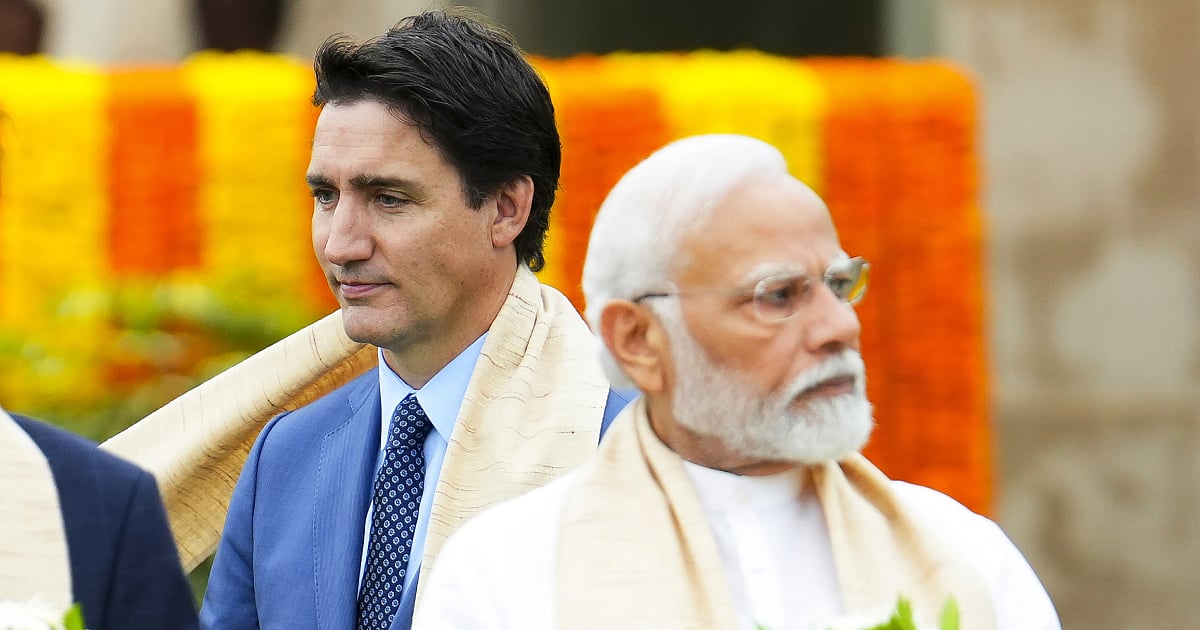 |
|
The escalating diplomatic tensions between India and Canada, sparked by the killing of Hardeep Singh Nijjar, a Khalistani terrorist, appear to be showing signs of de-escalation. This shift stems from a decisive statement issued by Nathalie G Drouin, the national security and intelligence advisor to Canadian Prime Minister Justin Trudeau. Drouin categorically dismissed reports linking Prime Minister Narendra Modi, External Affairs Minister S Jaishankar, and National Security Advisor Ajit Doval to criminal activities within Canada. She declared these reports 'speculative and inaccurate,' directly contradicting earlier assertions made by Trudeau himself, who had claimed credible allegations linked Indian officials to Nijjar's death. This stark contrast in statements highlights the evolving narrative and the potential for a thawing of relations between the two nations.
The Canadian government's forceful denial follows India's strong rebuttal of media reports attempting to connect the assassination of Nijjar to the aforementioned Indian officials. The Ministry of External Affairs (MEA) branded these reports as ludicrous and smear campaigns designed to further damage already strained ties. Randhir Jaiwal, the MEA spokesperson, explicitly stated that while they typically refrain from commenting on media reports, the gravity of these accusations warranted a direct response. The Indian government's firm stance underscores its commitment to protecting the reputation of its top officials and maintaining its sovereignty in the face of unsubstantiated allegations. The sharp exchange of statements reveals the deep-seated mistrust and the high stakes involved in this international dispute.
The initial allegations, made by the Canadian government, accusing Indian officials of involvement in Nijjar's assassination, significantly escalated tensions between the two countries. Trudeau's assertion of 'credible allegations' sparked outrage in India, leading to strong denials and reciprocal accusations. The subsequent release of the Canadian statement acknowledging the lack of evidence linking Modi, Jaishankar, and Doval to the crime marks a pivotal moment. This suggests a potential shift in Canada's approach, perhaps reflecting a reassessment of the evidence available or a strategic decision to de-escalate the conflict. While the underlying tensions remain, this development indicates a possible path towards restoring diplomatic dialogue and preventing further deterioration of relations.
The incident involving Nijjar's killing serves as a critical case study in the complexities of international relations and the delicate balance between national security concerns and maintaining diplomatic stability. The dissemination of unsubstantiated accusations through media channels can have profound consequences, particularly when dealing with high-profile political figures and sensitive geopolitical issues. The initial inflammatory rhetoric, coupled with the subsequent retraction or clarification of the allegations, underscores the importance of verified information and responsible reporting in shaping international perceptions and preventing misunderstandings from escalating into full-blown crises. The ongoing investigation into Nijjar's death will play a crucial role in determining the truth and ultimately informing the future trajectory of the India-Canada relationship.
Looking ahead, the next steps taken by both governments will be closely watched by the international community. A sustained effort to rebuild trust and establish open channels of communication is vital for resolving outstanding differences and preventing future escalations. Reconciliation will require a commitment from both sides to engage in constructive dialogue, address concerns transparently, and adhere to international norms and practices. While the current development suggests a potential pathway towards improved relations, the ultimate success hinges on a willingness to move beyond accusations and engage in genuine diplomatic efforts. The long-term impact of this incident on the India-Canada relationship will depend largely on the successful navigation of this complex diplomatic challenge.
Source: Thaw in the works? Canada rubbishes reports linking Nijjar killing to PM Modi, NSA Doval
